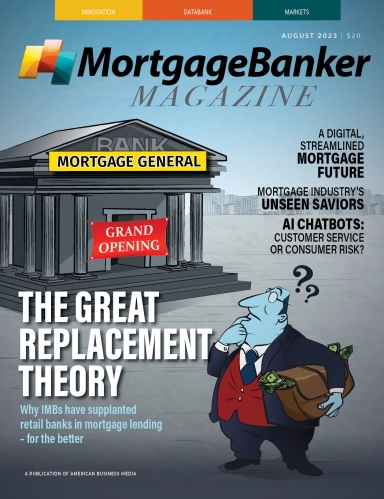The Modernization Conflict
The recent updates from the Fannie Mae selling guide has caused a stir amongst the appraiser community. Especially, the clause accepting property data collection from third parties, including realtors and inspectors.
According to some industry experts, this undermines all of the training certified appraisers went through in order to be trusted with appraisals.
Furthermore, it doesn’t make sense to bar trainees who have more education on this topic, while third parties go through minimal training and can conduct the appraisal without a supervisor.
Hogan said he was leery of this particular guideline from Fanne Mae.
“I believe those inspections should be appraisers or they could be trainees. That's a perfect opportunity for a trainee to do that, right?” Hogan said. “Instead of having a realtor or even a non-realtors, there's cases out there where the person wasn't even a realtor, they just were an inspector.”
The Appraisal Institute also shared its concerns about appraisal waivers and property data collection programs in a letter sent to the FHFA.
“Of particular concern is the encouraged development of an alternative workforce of property data collectors that may negatively impact aspiring appraisers’ ability to enter the appraisal profession,” the letter stated. “Appraisal observations and inspections are eligible for experience credit by appraiser trainees. However, when this work is completed outside of the supervisory appraiser-trainee relationship, it is not currently allowed because it is not able to be logged or tracked by state regulatory officials.”
But, Matthew Stepanovich, vice president of national sales, hybrid valuations and quality control for SingleSource Property Solutions, says appraisers shouldn’t worry too much about these third-party realtors or inspectors taking their jobs. This should actually be helpful in rural areas where there aren’t many appraisers.
“If we can get somebody else out there to take away the drive time, the scheduling, the time spent at appointments and all of that … [then] we can have them doing the real job of sitting at their desks and doing the deep dive into the valuation, so that number is correct,” Stepanovich said.
These third-party substitutes for appraisers will go through a customized training program provided by companies such as SingleSource Property Solutions, which provides mortgage services and property management solutions to lenders. They will be required to pass a test and undergo annual background checks, Stepanovich said. The training and education requirements are created and customized by each company that chooses to provide this service. Currently, there are no official training or education requirements for third parties earning this certification.
“We need help seeing more of these properties,” Stepanovich said. “Some appraisers might be aging out, and unable to go and see this many properties in the wintertime or during certain seasons.”
The success of value acceptance and third-party data collection highly depends on the market. In rural areas, where not enough appraisers are available to see homes, this could be very helpful. In other markets, many appraisers already are in competition with one another.
“In my opinion, I don't think it's gonna take off and replace appraisers because there are skills that appraisers bring to the table that these data collectors and realtors don't have,” Hogan said.
AI PAREA / VATP: The Solution
Luckily two programs offer possible solutions to these problems, and each one addresses challenges within the training and education process. One, however, requires the cooperation of lenders to help out trainees.
All trainees in the Valligent program need to complete their education. Then, over the course of nine to 12 months, they are supervised by experienced, certified appraisers who will ensure their trainees have access to the most recent technology tools and resources in order to successfully complete all state requirements and reach certification.
Valligent will ensure plenty of supervisors are available to take on trainees, because they have hired certified appraisers as full-time employees solely for this reason. This way, supervisors can be fairly compensated for their time and generosity. Valligent will also be hiring trainees and providing them a full-time salary as well as the latest technology and tools needed to conduct hybrid appraisals.












